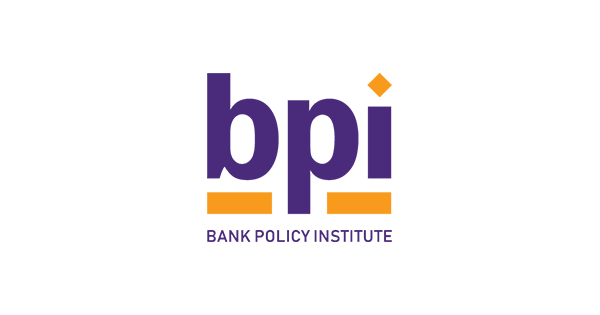How Regulators Could Strengthen the Banking System Without Sacrificing the Economy
| June 9, 2023 Washington, D.C. – The Bank Policy Institute today released a series of policy recommendations to strengthen the resilience of the banking system while allowing banks to continue funding economic growth. Collectively, they are a reasoned and holistic response to the failure of Silicon Valley Bank and troubles at other banks.
“In spite of recent events, the overall banking system remains strong and resilient. These recommendations are intended to offer informed, thoughtful insights to policymakers as they contemplate what additional actions could further strengthen the system,” said Jamie Dimon, Chairman of BPI, Chairman of the Board and CEO of JPMorgan Chase & Co. “These recommendations will provide assistance in considering any changes made to the banking system, which is the bedrock of the American economy,” said René Jones, Vice Chair of BPI and Chairman and CEO of M&T Bank Corporation. “New policies should address the root cause of the recent events to ensure that banks of all sizes can continue being a vital source of lending to families, businesses, and communities across America.” Said Greg Baer, BPI President and CEO, “Bank regulation is a complicated business, and comes with important costs and benefits. We have worked closely with our members to identify a series of policies that would target problems of interest rate and liquidity risk highlighted by Silicon Valley Bank and its fallout; we reject proposals by some that attempt to fit their favorite policy pegs into the unusually shaped hole that appeared in March.” BPI is presenting two sets of recommendations: first, a small number of immediate steps that should be taken to avoid a significant reduction in bank lending; second, policy changes that would over the medium to long term improve bank resiliency and financial stability while minimizing costs to economic growth.
Immediate Steps These steps include:
Policy Recommendations Liquidity
Capital
Examination BPI includes a detailed series of recommendations on how to refocus the examination process, as the public release of examination materials has now given policymakers some sense of how examination has lost its way.
Industry consolidation Working closely with its members and other experts in the field, BPI presents a series of concrete steps that the banking agencies could take to bring transparency and speed to a process that is currently a mystery to potential applicants and the broader public.
Resolution practices
Securitization
Opposition BPI also identifies policies that it would oppose, including any general increase in capital requirements (e.g., pursuant to implementation of the 2017 Basel Accord) that is predicated on spring 2023 events; those events focused on “bread and butter” interest rate and liquidity risk, whereas the 2017 Basel Accord focused on market, credit and operational risk.
For the full list of policy recommendations, click here.
About Bank Policy Institute.The Bank Policy Institute (BPI) is a nonpartisan public policy, research and advocacy group, representing the nation’s leading banks and their customers. Our members include universal banks, regional banks and the major foreign banks doing business in the United States. Collectively, they employ almost 2 million Americans, make nearly half of the nation’s small business loans, and are an engine for financial innovation and economic growth. www.bpi.com
|
Media Contact:
Sean Oblack
[email protected]








